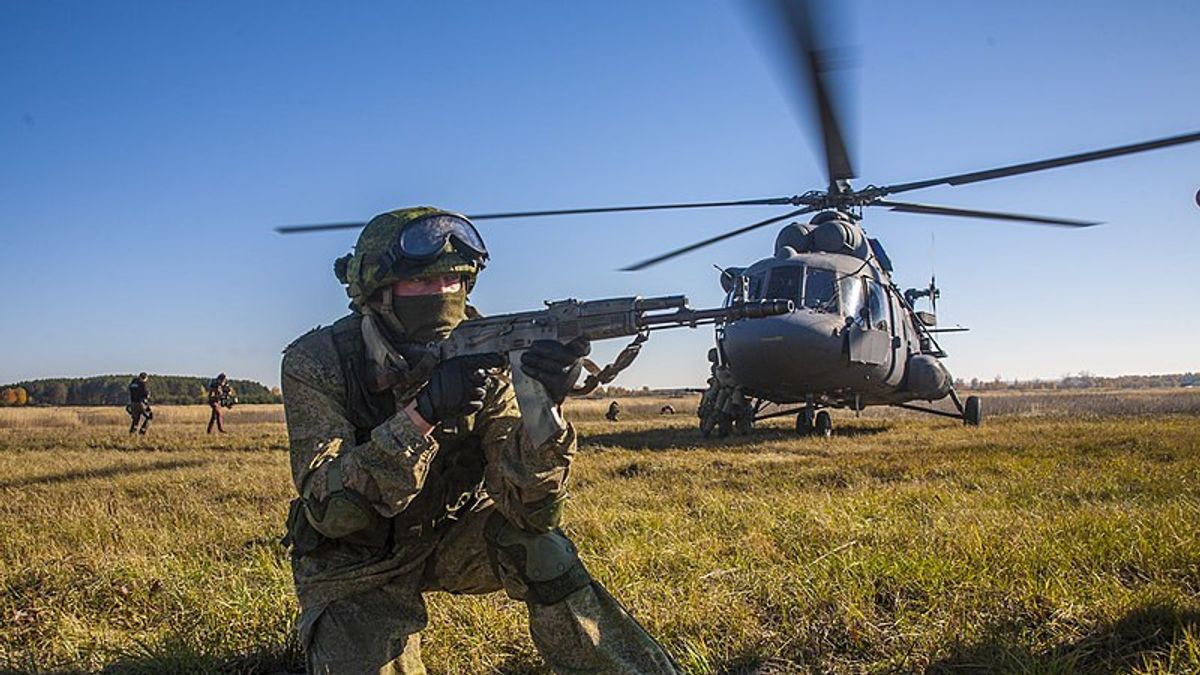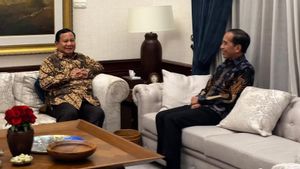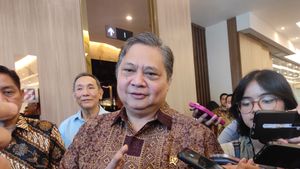JAKARTA - Spetsnaz has become a name that is widely mentioned in the news this week, accompanying the political crisis that is currently engulfing Russia-Ukraine. Spetsnaz is nothing but a designation for Russian special forces units, which are said to be very reliable in the field of intelligence and attack.
Secretary General of the North Atlantic Treaty Organization (NATO), Jens Stoltenberg said on Thursday 3 February 2022 that Russia included a special Spetsnaz unit in the deployment of 30,000 troops to Belarus. The deployment of such troops is the largest Russia has seen since the end of the Cold War.
"All of this is combined with Russia's annual nuclear force drills," Stoltenberg said in a statement.

The Daily Mail reported that Russia slid two battalions of Spetsnaz units (about 1500-2000 troops), transporting them by train to the Belarus-Ukraine border. This additional Spetsnaz battalion will support the 5000 similar troops already occupying permanent posts in Belarus, a country in northern Ukraine. Belarus is a close ally of Russia in the economic and political fields.
As an infantry troop, the Spetsnaz are believed to be the spearhead of Russia if it attacks Ukraine. These special forces are skilled in infiltrating enemy defense lines, carrying out sabotage, and assassinating missions.
Kremlin spokesman Dmitry Peskov said Russia had good reasons for deploying a massive force on the border with Ukraine.
“De facto the United States continues to increase tensions in Europe. Based on that evidence, we Russians have reason to be concerned," Peskov said as reported by TASS.

British Defense Secretary Ben Wallace said that Spetsnaz units had actually been in Ukraine since the Crimean Peninsula crisis heated up in 2014. Currently the number of these special units is increasing, supporting personnel who have long held posts in Ukraine.
“Any attempt to cross the borders of Ukraine, whether few or many people, will be considered a violation of sovereignty, invasion and against international law. We can't act half-heartedly, there's only yes or no," Wallace was quoted as saying by The Mirror.
Britain provided the Ukrainian troops with thousands of NLAW (Next generation Light Anti-tank Weapon) anti-tank missiles, to compensate for the strength of the Russian troops. The UK also sent 100 military instructors to train Ukrainian troops using NLAW.
Initial Ideas Formation
Spetsnaz is an abbreviation of spetesialnoe naznachenie, which means "special duty". The concept of the Spetsnaz dates back to World War I, in which an elite squad of reconnaissance units were tasked with operating on enemy back lines to wreak havoc.
In the early days, they only had 300 people, the majority of whom were from the Kosak ethnic group. These special forces were able to speak multiple languages to interrogate prisoners, and carried German-made rifles to better mingle with the enemy.
Quoted from GlobalSecurity.org, in 1952 the ruler of the Soviet Union, Joseph Stalin gave a special task to the elite Kosak troops to sabotage the enemy's nuclear power. By 1962 the Soviet Union already had five Spetsnaz battalions. 1974 Spetsnaz officially formed.
In 1979 the Spetsnaz's duties were expanded, covering: sabotage, attacks on vital military installations, power plants, air bases, to the assassination of enemy leaders or commanders. In the modern era Spetsnaz played a major role in the Russian invasion of Afghanistan, the Syrian war, the war against the Chechen rebels in Chechnya, to the counter-terrorism operation to free hostages at the Moscow Theater and hostage school students in Beslan, the Republic of Ossetia.

To be selected as part of the Spetsnaz troops, a candidate must have complete abilities ranging from parachuting, mountain climbing, jungle exploration, counter terrorism, to expertise in explosives. From each Spetsnaz troop recruitment, on average only 5-10 percent of candidates pass the selection. Spetsnaz can be attached to any form of institution in the Russian Federative Republic.
In the 2014 invasion of the Crimean Peninsula, it was the Spetsnaz who played a major role in the subjugation of Ukrainian forces, the takeover of the parliament, the election of the prime minister, and the infiltration of Ukrainian military headquarters. President Vladimir Putin referred to these Spetsnaz members as "polite people or troops". Spetsnaz troops do not wear any insignia on their uniforms, and always wear black masks to hide their identity.
Main Tasks in Ukraine Today
According to military analyst Brent Eastwood, the Spetsnaz's presence in Ukraine today has a task that is not much different from when the elite Russian troops played a role in the Crimean Peninsula conflict. One of the most feared tasks is the assassination of a civilian political leader, be it the President of Ukraine or anyone who plays a major role in political decisions in that country. If that happens, Ukraine's morale and determination to fight Russian hegemony will be drained.

The Spetsnaz can also train pro-Russian separatist guerrillas to fight on the rear. Ukraine's military leaders will also definitely be the target of the Spetsnaz's aim for elimination. But the Spetsnaz's primary mission in the near term could be reconnaissance, to provide detailed information to infantry, artillery, armored units and air forces.
In the next few months, Russia will rely heavily on special Spetsnaz units. The decision to attack Ukraine or not, will depend largely on input from the special unit. Russia has Spetsnaz, one of the best special forces in Europe. Their accurate monitoring of the latest developments in Ukraine, will multiply Russia's success in conventional and unconventional wars.
The English, Chinese, Japanese, Arabic, and French versions are automatically generated by the AI. So there may still be inaccuracies in translating, please always see Indonesian as our main language. (system supported by DigitalSiber.id)










